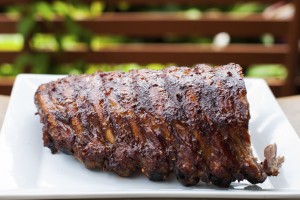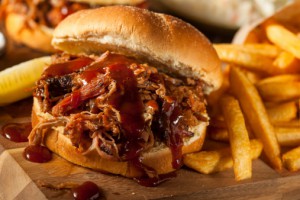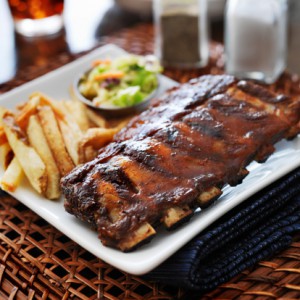Once again, news of warm weather barbecue competitions is starting to make its way into the forefront of American’s consciousness. So we wanted to focus this week’s blog on tips for businesses and organizations looking to do a bit of barbecue-style, slow cooking in the weeks ahead.
Steam it Up!
Short on time and long on demand for your fall-off-the-bone barbecue ribs? Skip the stock pot boiling option and steam things up instead. Steaming the ribs before tossing them onto the grill will cut your cooking time without sacrificing moisture, flavor and color. The best piece of equipment for the job is the Thermodyne Steam Giant of course, if you are looking for smoke flavor be sure to smoke them prior to steaming the ribs. We typically remove the membrane off the ribs and marinate or cover in a rub and refrigerate overnight prior to cooking.
Go Low and Slow
If you’ve got all the time needed to make slow cooked barbecue fare, we’d suggest investing in a countertop or full-size holding unit. They will allow you to cook low and slow, just like the often unforgiving barbecue Gods intended. Many BBQ masters swear by using temperatures in the 200 degree Fahrenheit range for slow cooking meats. Our Thermodyne food warmers tend to reach a maximum temperature of 230 degrees Fahrenheit. So using any one of our food warmers would undoubtedly make serving tasty pans of cue a reality. We’ve had best results at slow cooking ribs at 190F, we then finish them off quickly on a grill, open pit or impinger.
Got Smoke?
Speaking of which, some of the units are also capable of holding stainless steel drip pans, vented drawer lids and steam table pans. So you could feasibly add BBQ marinade and wood chips into the mix too. If you decide to do so, remember that most cuts of beef and pork eventually stop absorbing smoke after being slow cooked for about two to three hours. Thus, there is no need to overdo it.
To ask questions and get more tips on preparing slow cooked barbecue foods with our Thermodyne Food Service Products, please contact us at (800) 526-9182. We’d be happy to help your food service business serve the most mouth-watering, warm weather fare imaginable.




